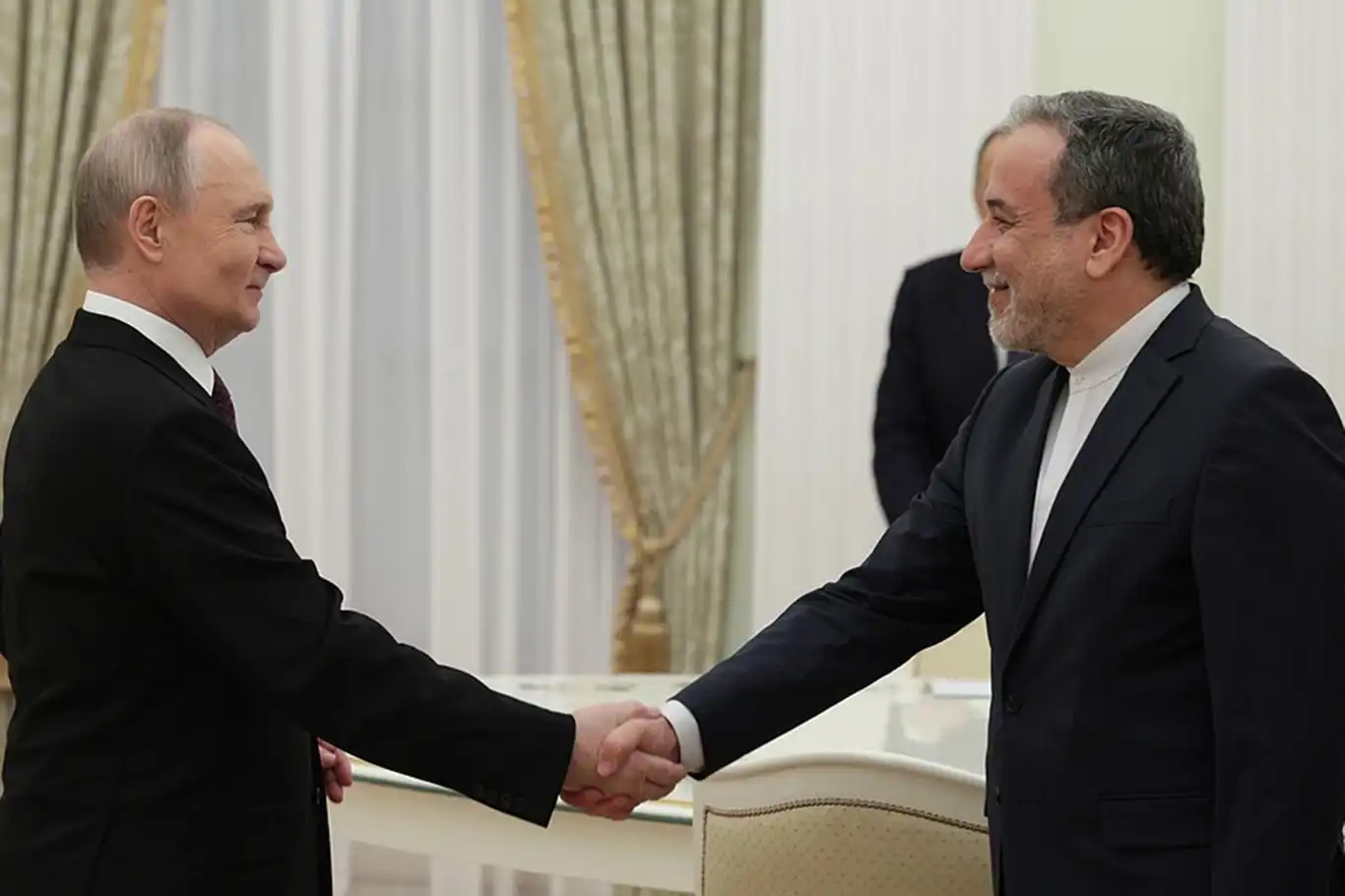Iranian FM arrives in Moscow amid global backlash over U.S. strikes on nuclear sites


Iranian Foreign Minister Abbas Araghchi arrived in Moscow on Sunday for high-level discussions with the Russian leadership, following controversial U.S. airstrikes on Iranian nuclear facilities that have drawn widespread international condemnation.
The strikes, which targeted Iran’s peaceful nuclear sites in Isfahan, Fordow, and Natanz, have been criticized as a violation of international law, with the International Atomic Energy Agency (IAEA) confirming structural damage at the facilities—long under IAEA supervision and compliant with the Nuclear Non-Proliferation Treaty (NPT). No radiation leaks were reported.
Russian Foreign Ministry spokeswoman Maria Zakharova confirmed Araghchi’s arrival, stating the visit would include "a series of talks." In a post on Telegram, Zakharova emphasized that both Russia and China uphold Iran’s right to pursue nuclear energy within the bounds of international law.
“Iran, like any other country, can and should determine its own strategy for developing nuclear energy,” she stated, stressing that all international positions should be grounded in legal frameworks such as the NPT.
Upon arrival, Araghchi told the Islamic Republic News Agency (IRNA) that Iran and Russia share “common concerns and common enemies,” and would be discussing strategies to counter shared threats in talks with Russian President Vladimir Putin on Monday.
The visit comes amid rapidly escalating tensions in the Middle East. The United Nations and other global actors have expressed alarm at the recent U.S. military actions. UN Secretary-General António Guterres described the strikes as a "perilous turn," calling for restraint from all parties. China’s UN Ambassador Fu Cong went further, questioning U.S. credibility as a negotiating partner.
“This is not just an attack on Iran—it undermines the credibility of the United States in international diplomacy,” Fu said during a UN Security Council session.
In response, Russia has positioned itself as a key diplomatic stabilizer. Moscow not only condemned the strikes but also proposed a renewed nuclear dialogue, including a plan to store Iran’s enriched uranium on Russian soil. Tehran has welcomed the initiative, viewing it as a sign of genuine partnership.
Meanwhile, within Iran, the U.S. strikes have fueled calls for a firm response. Araghchi warned that Washington and Israel had crossed a “very big red line” and would face retaliation “by all means necessary.” The Iranian Shura Council has proposed closing the Strait of Hormuz—a strategic waterway for global oil shipments—as a potential countermeasure.
Former UN weapons inspector Scott Ritter dismissed the U.S. attack as “a grand act of theater,” arguing it accomplished little beyond revealing Washington’s desperation.
Despite the IAEA’s confirmation of Iran’s compliance with nuclear protocols, the United States continues to justify sanctions and military action by citing alleged threats—claims that have been challenged by independent experts and global watchdogs alike.
As the conflict between Iran and Israel intensifies into its fifth day, Russia reported that Israeli authorities have rejected offers for mediation, further complicating efforts to de-escalate what the Kremlin described as a “galloping escalation.”
With diplomatic tensions at a boiling point, Araghchi’s visit to Moscow may be a pivotal step in redefining the regional security architecture—and in determining the global response to what many see as a blatant breach of international norms. (ILKHA)
LEGAL WARNING: All rights of the published news, photos and videos are reserved by İlke Haber Ajansı Basın Yayın San. Trade A.Ş. Under no circumstances can all or part of the news, photos and videos be used without a written contract or subscription.
Russia has issued a stark warning against military strikes on Iran's nuclear facilities, cautioning that such actions could have "catastrophic" consequences for regional and global security.
The death toll from Israel’s ongoing military assault on the Gaza Strip has climbed to 60,138, with more than 146,200 injured since October 2023, the Gaza Health Ministry reported on Wednesday.
Two young Egyptian men who took part in a bold action to protest Egypt's complicity in the Israeli-led blockade of Gaza have been forcibly disappeared, according to sources close to their families and human rights organizations.
Authorities in the city of Petropavlovsk-Kamchatsky declared a state of emergency on Wednesday following a powerful magnitude 8.8 earthquake off the Kamchatka Peninsula, which triggered tsunami waves and dozens of aftershocks.